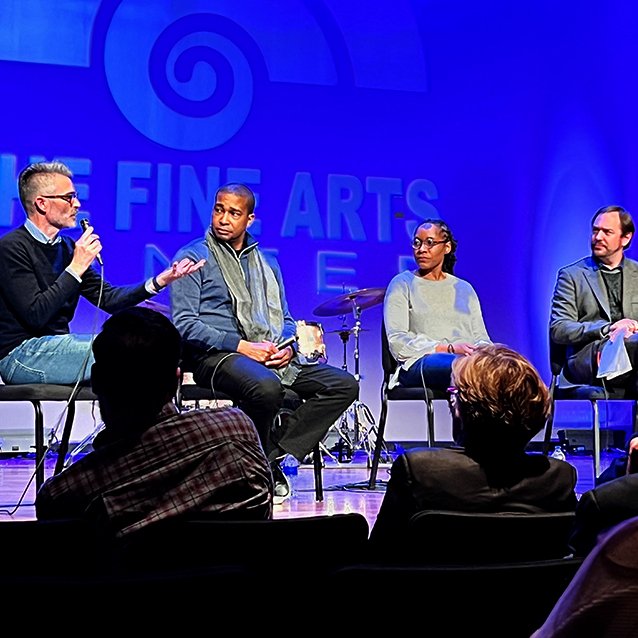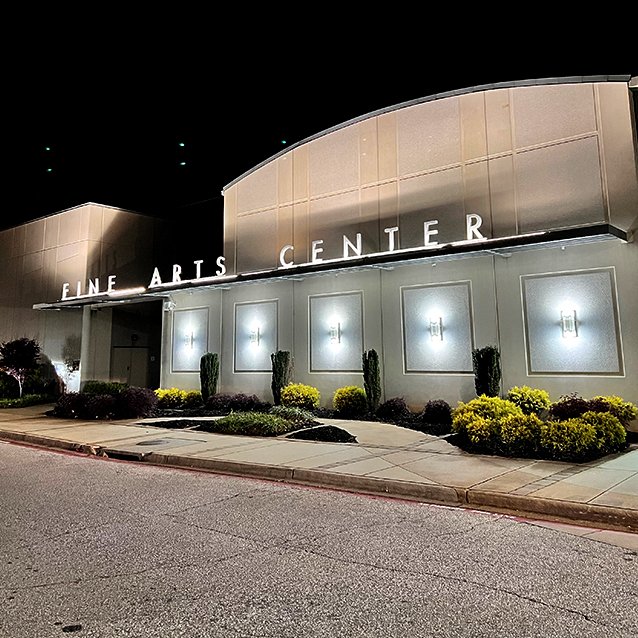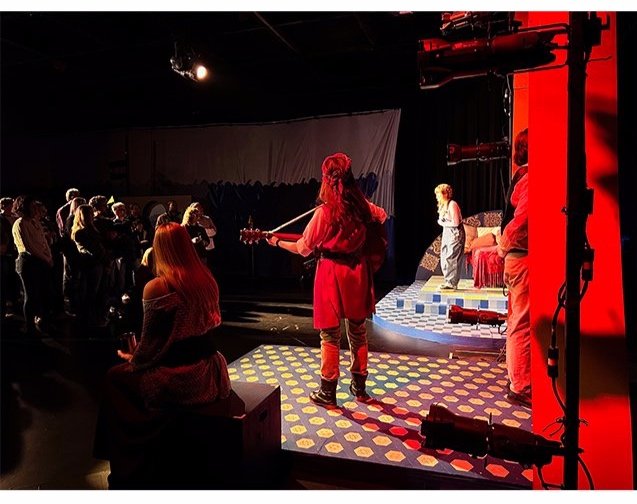shakespeare & inclusivity
somebody asked me last week "why shakespeare? of all the other playwrights that exist, even from that time period, do you think it's fair how much attention he gets?"
my on-the-spot hypothesis was that because his work, specifically, has endured, think of all the research that already exists. we know so much about the era, the politics, the common-knowledge fables and mindset of the populace ("pop" culture!) because of the 4+ centuries of study countless scholars have poured into his work... why reinvent the wheel? you could spend infinite (okay, at least a lot of) lifetimes learning about shakespeare and his [attributed] works and still not begin to know or understand everything. doesn't it make more sense to start there then from some random play by a more obscure playwright? certainly they've lasted for a reason: because the drama, the lives, the issues are still relevant.
i was happy not just to have my impromptu thesis reinforced, but embellished upon during last week's lecture at greenville's fine arts center.
sponsored by the south carolina new play festival (you remember! that blog post here!), three stupendous shakespeare celebrities came to discuss "shakespeare & inclusivity: redefining and reimagining shakespeare" before the FAC's student (&, er, musical) performance of pericles.
in attendance:
tia james, shakespeare professor at unc chapel hill, shakespeare actor (including on broadway in the merchant of venice, and for the public theatre for shakespeare in the park!)
cameron knight, head of acting at mason school for the arts at rutgers university and has performed not just at the kennedy center and at the oregon shakespeare festival, but at shakespeare's globe in london (!!)
and rick dildine, the director of the alabama shakespeare festival, one of the largest shakespeare festivals in the coutry.
be still my nerdy heart!
yes, i had to fight the early-dark winter-overwhelm to attend. (+ nutty pre-holiday traffic and the confusing maze of high school parking lots), so here's to learning from nationally- and internationally-renowned actors and directors right here in greenville.
my warm house, jammies, and this season's great british baking show finale episode did their darndest to cradle me into the introverted comforts (i.e. excuses) of not going, but once my maps app showed me the route? i really had no excuse.
granted, i made a few circles through the parking lot (possibly an illegal u-turn) after missing the entrance; i avoided an oversized pick-up truck (what is this, texas?) speeding around me as i nearly accidentally entered the one-way exit for the school's athletic fields (as-if)—and then sped myself past the late pick-up line of parent cars... eventually squeezing in to squat in a fine arts center visitor parking spot. (if i have a play ticket, that makes me a visitor, right?)
modeled after the disney animation building in burbank, ca (to which i have yet to make a pilgrimage; please don't rub it in), i honestly had no idea before last week that the fine arts center was less than two miles from my house.
i'd heard rumors of this place.
met kids who go there after their core classes.
met artists who do guest teaching stints there.
it took fifteen years or so of living here later, and thanks to being on the sc new play fest email list... a) i learned about last friday's lecture, and thanks to a guest to my husband's open studios last weekend, b) i learned that the fine arts center has productions open to the public.
i'll share my big-picture take-aways, and then the transcribed [with a few paraphrases for clarity from my notes] conversation below.
the highlights:
making space for everyone in the theatre.
how the play can evolve—expressing new experiences depending on the individual cast in the role.
acknowledging diversity in the cast and how it affects the story you're telling (vs. "color-blind casting.")
making the central question of the play relevant to students (vs. something to be tested on in english class.)
the importance of the uniqueness of the actor's own voice and obliterating cookie-cutter acting schools.
the freedom to cut problematic lines. (the play will not suffer if you take out a racist comment!)
the ability to play. to cut-and-paste shakespeare's works to make new ones.
the frailty of a "concept" versus good storytelling.
the extraordinary language of shakespeare to express the full range of feelings and emotions we don't have the words for ourselves.
how casting choices can add to the inclusivity and dimensionality of the story—providing something new to find every time one of these 400+ year-old plays is performed.
tools not rules! (although "iambic fundamentalists" are proud and out there, too.)
treating shakespeare as contemporary plays instead of "the classics" to find the questions at the heart of the tales and their relevance to today's chaotic society.
more-or-less the whole conversation [brackets my own]:
RD: rick dildine
CK: cameron knight
TJ: tia james
why keep doing shakespeare?
RD: there's something new to find every time i come to the body of work. shakespeare is the artistic olympics of theatre.
CK: as long as people want to consume it, we should keep doing it. the plays are relevant because the work is so timeless. it's resonant because we can keep reinventing it. we can still learn a lot from it. the texts still pose questions of how we can be better.
TJ: why do i enjoy it? as an introverted child, i had big feelings, but i never had the words to articulate it. one of my high school teachers, ms. dickson, handed me one of helena's monologues and said, "tia, come work on this." shakespeare's language was so big and imaginative that i finally had some words to express how i felt.
shakespeare gave me the means with which to wrestle with my own expression.
performing shakespeare links us in conversation with all of the actors who have done it across the centuries.
let's talk about trends in professional shakespeare and education in relation to the bard.
CK: the plays take a lot. but people are still finding ways to express themselves and their identities in these 400 year-old plays. there was a cambodian hamlet. there was an all-male, all-drag production in new york city. there was a rock n' roll shakespeare in mexico.
some authors are taking scenes from different plays and combining them to make a new work. artists are diving in to experiment and play—the work doesn't have to be in "figuring it out." we can make it new. and it still resonates.
we owe shakespeare nothing. he's gone. he's dead. we can do whatever we want with the work. it allows for exploration.
RD: it's okay to have "a great idea," but you have to have a STORY to tell. there can be a lens through which the director wants to tell the story, but a "high-concept" idea will wear off in the first five minutes of the production.
in the presence of a great actor, you don't even need a set or props—none of the fluff. it's just communication.
TJ: in 2020, i played marc antony in julius caesar. the production got to tell a certain kind of story with me. when i was cast as benedick in much ado, i was a queer black woman in the military fighting a man for the honor of a woman! the trend is crazy and exciting: let's keep going!
CK: my othello is really good, but i don't always want to play that. and don't cast me as don pedro just because denzel washington played him in the kenneth branagh film.
it legitimizes the author if anyone can play the role.
there are versions of these stories we have yet to see! it will resonate in new ways every time.
it's a different story now IF you make room for the bodies in this space.
the words, the script: it all means nothing until the person says it.
stand in your story and tell it for yourself!
shakespeare can give room for all these voices
RD: it's a place where everyone can have a voice.
how do you present the play so it's relevant to students? how do you help teenagers find their way into this?
CK: TOOLS not RULES!
start by asking them what they think. have them read it. what does it mean to you? you've gotta find your own jazz voice to sing the song. there is absolutely no soul in the text if it's merely arguably "correct" shakespeare. the tools are there for if you get stuck.
shakespeare's plays weren't "classic" when they were written; let's treat them like contemporary plays!
so let's just read it and talk about it. the story does have a place for them.
TJ: i admit, i'm an "iambic fundamentalist." so yeah, i've been a little brainwashed, but i like it.
you get the language in your mouth. and once you have that rhythm inside of you, then you can fly.
the iambic meter is five heart beats.
when you're stuck? paraphrase it. say it in your own words; then use the same inflection to express yourself with shakespeare's words.
RD: these are extraordinary moments in people's lives; therefore it takes extraordinary language to express it.
let's talk about shakespeare VOICE. that certain tone and cadence that so many actors put on when performing a shakespeare play.
CK: shakespeare breaks out of language's limitations. his words are about identity. it needs an extraordinary YOU to present the story. not some elevated "sound" [like a put-on serious-theatre-man voice]. there's a vulnerability anytime someone reads or performs shakespeare.
sometimes a voice is like a mask. to do shakespeare well, you've gotta break out of what shakespeare is "supposed" to sound like. what does it sound like in THAT person's voice?
find your own voice when you're talking at a bar and not speaking "shakesperean."
you've gotta be comfortable in the complexity of your own sound.
RD: as a director, you've got to make sure everyone is in the same world. you don't want the audience to focus on the wrong things; so i ask myself, "how do i use what they are bringing to tell the story?" [ex: southern accents, british dialect, etc.]
TJ: you've got to free the actor's voice first; if shakespeare comes FIRST, they might be too intimidated to coach out their real voice.
let's talk about "color-blind casting."
CK: the intention of "color-blind casting" is good. but i WANT you to see my identity because it's a part of the experience. i've got to know as an actor, "who am i in the family?" color-blind casting can be a way of NOT dealing with the issues that come up.
for example, i was cast as benedick [in much ado about nothing] in a world war II setting. as a black soldier in wwII, i've got to know: how does THIS world happen? [black soldiers were in their own battalions. we were fighting for a country who, back home, still had us using separate bathrooms and lunch counters and water fountains. i can't just be at the USO dancing with a white woman over in europe.] the story is DIFFERENT by virtue of WHO is telling it.
we shouldn't be afraid of our differences, but actors have facility. you've got to make room for the bodies on stage. you canNOT ignore the fact that i am black.
the director should say: i'm gonna bring you in and we'll adapt to who is in the room.
why this play?
why now?
who's here?
what story are we telling?
people don't want to be a concept.
if I'M confused about HOW i'm in this play, i can't play the part.
shakespeare can allow for new voices and identities to come through by casting choices.
TJ: the theatre is not a "safe space," but a "brave space" for us to all look at the thing.
CK: is there a racist or a sexist line in the shakespeare play? CUT IT!
shakespeare was written during a certain time. we don't have to keep it.
TJ: there will be immediate hurt and distrust in the audience (or amongst the cast) if you keep it. cut it.
CK: you don't have to subject someone to that.
it's not going to harm the play if it's missing.
how do you feel about cuts/adaptations/hybrid shows? when is it no longer shakespeare?
RD: just make it good!
be specific.
specificity is the key to good storytelling.
TJ: i wish that theatre had room. shakespeare belongs to everyone.
have an idea? TRY IT! from there we'll know whether it's good or if it needs improving.
CK: some old actor training methods revolved around stripping the actor down and then rebuilding him. essentially, the play needed anything but you.
now we're moving more towards imagination and storytelling; let's find juliet together, not that "juliet must be like THIS." it all makes for a very "messy identity."
if everyone is trained the same, down to the way it "should" be done, that means twenty-three of twenty-four actors in a room are USELESS if they all move and talk the same.
the cookie-cutter version of making an artist needs to be done away with.
question from the audience about teaching romeo & juliet to a high school english class.
frame it so it's relevant.
the central question of romeo & juliet is "what if a community fails its young people?"
you've got to boil the story down to "how do i relate to this?"
what are we talking about?
it's also a conversation about suicide.
so you have plenty of room to unpack the big triggering issues.
make it relevant to the moment we're in.
it was a chaotic world romeo and juliet were living in.
i think the kids can relate.
you're not presenting the text for the kids to be tested on it.
TJ: shakespeare is not meant to be read, but to be PLAYED!
get them up on their feet and get them moving!
and now my thoughts from [the musical?!] "queen pericles:"
oft-debated as a maybe-not-really-penned-by-shakespeare play for its less-elevated language and convoluted plot, pericles was indeed a mind-bending plot to follow.
i've never read it. nor seen it performed.
and while i scanned both marjorie garber's essay on pericles from her incomparable SHAKESPEARE AFTER ALL, and charles and mary lamb's prose telling of the story, i honestly didn't follow.
once again out of my theatre comfort-zone, the stage moved. the actors moved. the audience was on its feet, being corralled and shifted around the blackbox theatre as the stage elements rolled and shifted with the scenes and the cast who entered and exited the space from various directions.
a few stand-out actors made it worthwhile. and the director cast a female as the lead, making the play "queen pericles," which changed the dynamic of the story being told. less of a bachelor on a quest for his family (i think thought lost at sea?) and more of a mother-daughter reunion. i honestly didn't follow what exactly changed from such a casting decision as i wasn't familiar with the original text, but it did feel like a less-mature of shakespeare's plays for sure. (think the winter's tale with shipwrecks and funerals and tournaments and goddesses and pirates...?)
after intermission i found a spot where i wasn't in the way (one of my forever-fears), even if i was near the spotlight for a few scenes.
and it was a great conversation [above] to have had before this particular production
did the concept work?
the turmoil and chaos of the moving stages? sure.
the music? it showed off the kids' multi-talents (singing! acting! dancing!), and i understand how a few of the songs (or at least some of the lyrics) fit into the play's plot (i think), but otherwise it felt unnecessary. my preference? the bard's words and i'm good. no fluff necessary.
did the color-blind casting work?
i mean, it's a high school production, so i imagine the number of actors that arrived for auditions was a different pool than one might find in a 8+ million people city like new york.
and modern suburban high schools? definitely diverse.
and this performance was a "traditional" telling. shakespearean. (er, "elizabethan," that is—aside from the last four decades' collection of pop music; p.s. if i never have to hear the song "sweet dreams are made of these" again, i shall be quite content.)
so while the mixed-ethnicity of the kids wasn't addressed, i could accept it as a "bridgerton"-like casting decision. it wasn't set during the civil war or the edwardian era, so with the resources available, and no setting that made it a particular issue, the cast's diversity didn't seem to be a story issue that needed addressing for the story to make sense. (mostly because it didn't.)
from observing other student shakespeare productions and rehearsals in my days, i know it's enough to get kids through the text and to fight their nerves. so i'm going to assume this cast's production all learned things they can carry forward.
and nothing beats the early experience of theatre-family camaraderie developed during the rehearsal process.
and "queen pericles" did sell out both weekends of shows, so depending on your definition of "success," i suppose it was. :)
8/24/2023 update: i just listened to the shakespeare unlimited podcast episode in which farah karim-cooper discusses her book, the great white bard: how to love shakespeare while talking about race
i totally recommend the listen!





